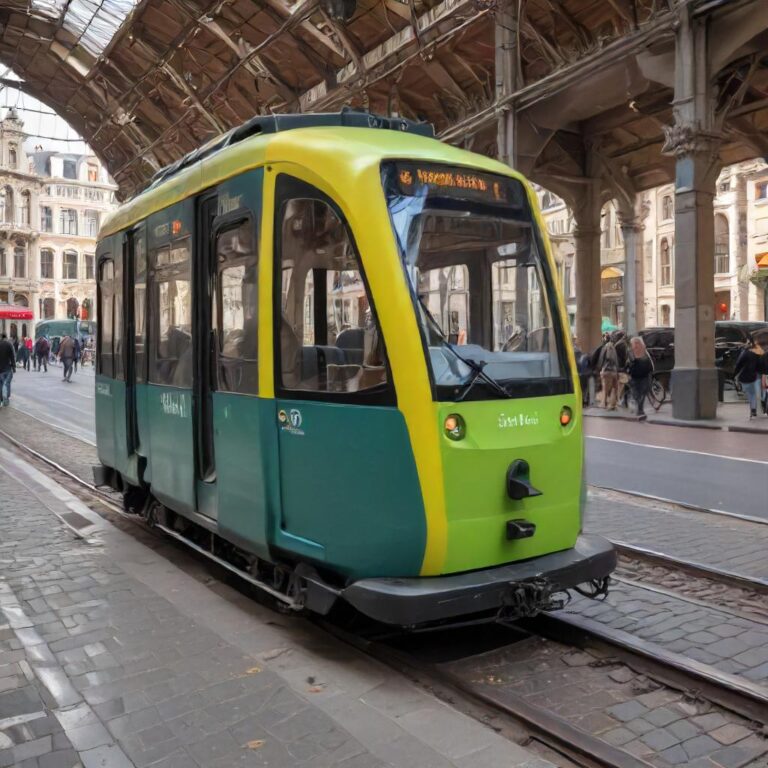Home » Europe » Is Brussels’ Switch to Electric Vehicles the Future of Sustainable Tourism?
Wednesday, July 17, 2024
Reading time: 3 minutes
Brussels has taken a major step by replacing its horse-drawn carriages with electric vehicles. The change came after Thibaut d’Antin, a businessman who previously ran a horse-drawn carriage service, found it increasingly difficult to continue his business due to changing attitudes towards animal welfare. After more than 10 years in the industry, he decided that in 2024 it was no longer viable to maintain a commercial business involving animals.
Collaboration and Development
Inspired by an early electric carriage invented by Robert Anderson in 1832, Dansin worked with local authorities to develop an all-electric carriage. The project took more than a year to complete and required a significant investment, though Dansin declined to reveal the exact cost, but stressed that the daily running costs were lower than with a horse, as there were no veterinary or blacksmith fees.
Brussels sightseeing experience

Visitors to Brussels can now hop in an electric car and explore the city’s historic sites, starting from the Grand Place, a UNESCO World Heritage Site known for its 17th-century buildings and bell tower, and touring landmarks such as the Palais de Justice and the Sablon, former residences of Belgian aristocrats.
Wider impacts on tourism
The move to electric carriages reflects a broader trend in the tourism industry towards more sustainable and animal-friendly practices. Other cities, such as Chicago and Montreal, have banned horse-drawn carriages outright due to animal welfare concerns. In contrast, New York City faces challenges in enforcing such a ban. Brussels’ approach represents a middle ground that allows carriage tours to continue while addressing these concerns.
Expanding the tour experience
The electric carriages can travel 120 kilometers (75 miles) on a single charge, longer distances than traditional carriages, allowing tourists to visit more remote sites such as Mont des Arts, known for its magnificent gardens and panoramic views of central Brussels, and Sainte-Catherine, famous for its seafood restaurants and Catholic church that recently started brewing beer.
Impact on the travel industry
The introduction of electric vehicles in Brussels is part of a wider effort to boost the city’s tourist appeal. In the early 1990s, the city pedestrianised the Grand Place and has since accelerated efforts to reduce traffic and promote cycling and walking in the historic centre. These changes aim to position Brussels as a top European tourist destination, rivalling cities such as Paris and Rome.
Optimism for the future
Dantine and Fabien Maingain, a former city council member in charge of economic affairs, are optimistic that electric vehicles can attract tourists while addressing animal rights issues. They hope that 15,000 people a year will use the new vehicles, helping to grow the city’s tourism industry.
Global impact on travellers
Brussels’ transition to electric vehicles is likely to influence other cities to consider similar sustainable tourism practices. Travelers around the world are increasingly seeking environmentally friendly and ethical travel options. The success of Brussels’ initiative could serve as a model for other destinations and lead to a more widespread adoption of electric vehicles in tourism. This trend is in line with the global movement towards sustainability and animal welfare, improving the overall travel experience for tourists seeking responsible travel options.
Future outlook
As Brussels continues to innovate and improve its tourism offerings, it is poised to attract more tourists who value sustainable and unique travel experiences. Electric cars are just one example of how the city is adapting to modern tourism demands while preserving its rich historical heritage.
Important points to note
Historical significance: The transition from horse-drawn carriages to electric cars in Brussels has historical roots and modern implications. Sustainability: The initiative supports sustainable tourism practices and addresses animal welfare issues. Expanded experience: Electric cars can cover a wider area, offering tourists a wider range of attractions. Future growth: The move will enable Brussels to compete with Europe’s leading tourist destinations.
Source link

